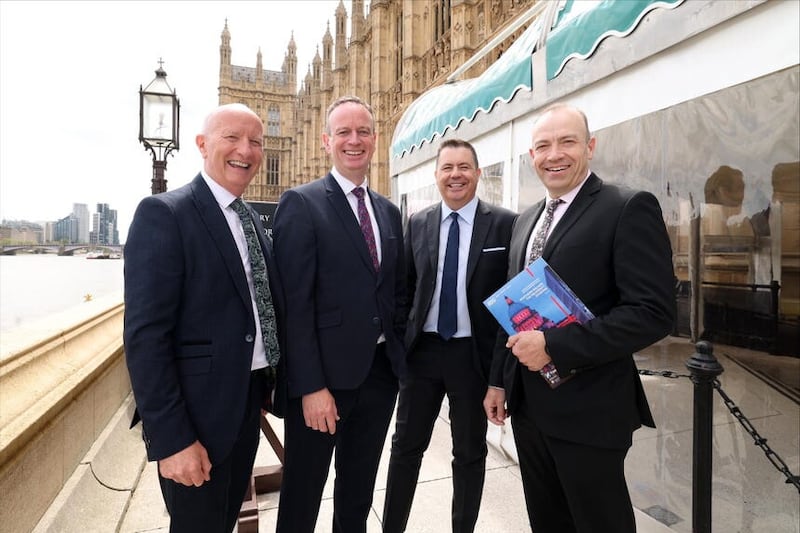WAYS to conduct a root and branch overhaul of the north's antiquated business rates system will feature on the agenda at a key two-day Department of Finance 'strategic insights lab' in Belfast today and tomorrow.
And the aim is that a set of high-level recommendations laying out the strategic direction for the future of town and city centres will be formulated for the next finance minister to give his or her immediate consideration.
It follows a report last month which found that 130 businesses operating in typical Northern Ireland high street will, over a three-year period, expect to pay £1.25 million more in rates than would be case if they were in Scotland.
A number of business bodies and senior civil servants will give evidence at the meeting and set out their proposals for rates change.
Among them will be Trade NI, a newly-formed alliance of Retail NI, Manufacturing NI and Hospitality Ulster.
The body claims the north's rating system is "far past its sell-by date" and that a roadmap for change is urgently needed.
In a joint statement Trade NI's three chief executives - Glyn Roberts, Stephen Kelly and Colin Neill - said: “We very much welcome this fundamental review of business rates and hope it will deliver the step change needed to fix the current broken and antiquated system.
“Fixing business rates is Trade NI’s top priority in terms of the hospitality and retail sectors.
“But we also want to see the targeted approach to small business rate relief, which was put forward by the last Finance Minister, rethinking rates as a vital starting point.
“These proposals include enhanced rates relief for the mainstays of the high street-independent retail and hospitality businesses.
“However, in terms of our manufacturing members, we have a very clear red line that the current industrial de-rating must not be changed. This is a key element in supporting thousands of jobs across the supply chain and is vital to the future of the local manufacturing sector.”
Their statement adds: “In addition, we also need to ensure that any new system of business rates includes incentives for business growth.
“We will be outlining proposals for a Green Rate Relief Scheme to incentivise businesses to invest in green technology, enhancing the current empty premises rate relief scheme, a capital allowance scheme and making it easier to access the rates hardship scheme.
“We hope this process will lead to a publication of an action plan to ensure that the next Finance Minister has options to make immediate changes.”
The two-day Strategic Insight Lab is being hosted by the Department for Communities, Department of Finance and Department for Infrastructure and will look at the question: ‘How can we make town and city centres places where people want to live, work, visit and do business?’
They have invited a number of experts who have experience in taking forward similar challenges to address the event about their particular perspectives and experiences in tackling similar challenges to that in Northern Ireland.
In a letter to attendees, the departments said: "Our aim is to enhance town and city centres across Northern Ireland to make them places where people want to live, work, visit and do business, and we believe that by having the right people in the room we will be able to achieve this ambition in the form of some high-level recommendations.
"It is intended that the outputs of the Strategic Insights Lab, a set of high-level recommendations setting the strategic direction for the future of town and city centres, will be presented to ministers in due course for their consideration. We are also committing to consider any recommendations that are within our gift that do not require ministerial approval."
A report last month by Larne businessmen Tom and Paul McMullan set out in detail the significant comparative disadvantage faced by the north’s small business sector compared to Scotland, England and Wales.
In Britain a small business with a NAV of up to £5,000 gets a 100 per cent discount on its rates whereas in Northern Ireland the discount is 25 per cent, generating a rates bill of around £2,200.
In Scotland and England, a small business with a rateable valuation of up to £12,000 again gets a full rates against 20 per cent in Northern Ireland, meaning an annual rates bill of some £5,700.







